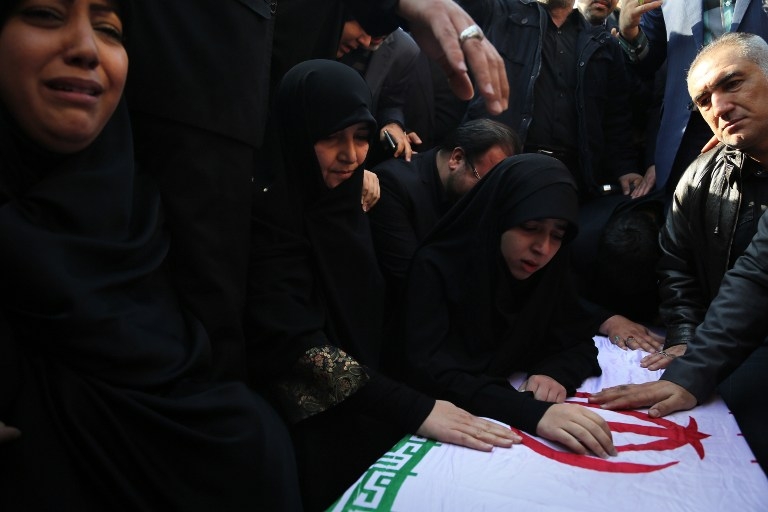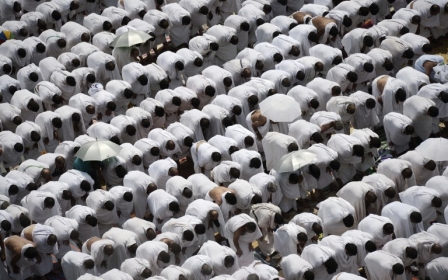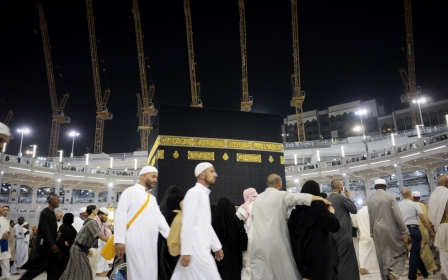Tehran blames Saudi Arabia for 'blocking path to Allah' for Iran pilgrims

Iran said on Sunday its pilgrims will miss the pilgrimage this year because Saudi Arabia, custodian of Islam's holiest sites, was raising obstacles and "blocking the path to Allah" for its faithful.
The Iranian Hajj Organisation said: "Saudi Arabia is opposing the absolute right of Iranians to go on the hajj and is blocking the path leading to Allah."
The Saudi side had failed to respond to Iranian demands over "the security and respect" of its pilgrims to Mecca, of whom 60,000 took part in last year's hajj, the organisation said.
A stampede at last September's hajj killed about 2,300 foreign pilgrims, including 464 Iranians, for whose deaths Iran blamed the Saudi organisers.
In the latest dispute between regional rivals Tehran and Riyadh, "after two series of negotiations without any results because of obstacles raised by the Saudis, Iranian pilgrims will unfortunately not be able to take part in the hajj" in September, Iran's Culture Minister Ali Jannati said.
Saudi officials have said an Iranian delegation wrapped up a visit to the kingdom on Friday without reaching a final agreement on arrangements for pilgrims from the Islamic republic.
The Saudi hajj ministry said it had offered "many solutions" to meet a string of demands made by the Iranians in two days of talks.
Agreement had been reached in some areas, including to use electronic visas which could be printed out by Iranian pilgrims, as Saudi diplomatic missions remain shut in Iran, it said.
It would be the first hajj in almost 30 years to take place without the participation of pilgrims from Iran.
Riyadh-Tehran ties were severed for four years after more than 400 people were killed in Mecca during clashes between Iranian pilgrims and Saudi security forces in 1987.
In January, relations were severed again after Iranian demonstrators torched Saudi Arabia's embassy and attacked a consulate following the kingdom's execution of a prominent Shia cleric.
Iran and Saudi Arabia are at odds over a raft of regional issues, notably the conflicts in Syria and Yemen in which they support opposing sides.
Hajj 'sabotage'
Earlier this month, Iran had accused its regional rival of seeking to "sabotage" the hajj, a pillar of Islam that devout Muslims must perform at least once during their lifetime if they are able.
Tehran said Riyadh had insisted that visas for Iranians be issued in a third country and would not allow pilgrims to be flown aboard Iranian aircraft.
But the Saudi hajj ministry said on Friday that Riyadh had agreed to allow Iranians to obtain visas through the Swiss embassy in Tehran, which has looked after Saudi interests since ties were severed in January.
Riyadh also agreed to allow some Iranian carriers to fly pilgrims to the kingdom despite a ban imposed on Iranian airlines following the diplomatic row between the two countries, the ministry said.
Last week's talks were the second attempt by the two countries to reach a deal on organising this year's pilgrimage for Iranians after an unsuccessful first round held in April in Saudi Arabia.
The Saudi ministry said at the time that the Iranian Hajj Organisation would be held responsible "in front of God and the people for the inability of its pilgrims to perform hajj this year".
Another contentious issue has been security, after a stampede at last September's hajj killed about 2,300 foreign pilgrims, including 464 Iranians.
New MEE newsletter: Jerusalem Dispatch
Sign up to get the latest insights and analysis on Israel-Palestine, alongside Turkey Unpacked and other MEE newsletters
Middle East Eye delivers independent and unrivalled coverage and analysis of the Middle East, North Africa and beyond. To learn more about republishing this content and the associated fees, please fill out this form. More about MEE can be found here.



